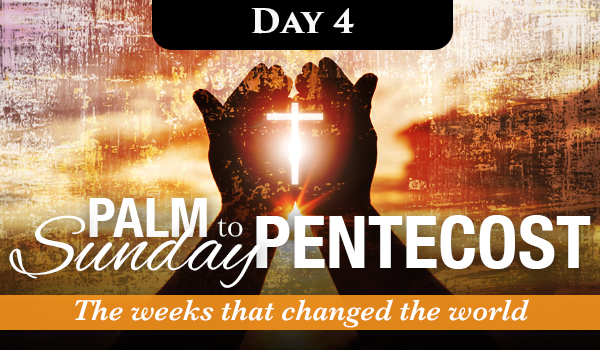The LORD said to Moses, “Speak to the Israelites and say to them:
‘These are my appointed festivals, the appointed festivals of the LORD,
which you are to proclaim as sacred assemblies.’”
Leviticus 23:1–2
New Year’s Day, Valentine’s Day, Presidents’ Day, St. Patrick’s Day, Memorial Day, and so on . . . our culture has many “holidays.” On the Lord’s calendar, there are several holy days. God ordained certain days on the Jewish religious calendar to commemorate important events in the history of His people. We looked at the first one, Passover, yesterday.
These holy days or feasts take place in the spring, and another set occurs in the fall. The spring feasts foreshadowed the First Coming of Christ and the fall feasts foreshadow the Second Coming. I covered this topic in other devotionals (Terminus and The Jewish Jesus) but some details must be mentioned here again. Today, we will only look at the spring feasts laid out in Leviticus 23, since they relate to when Jesus first came.
Passover kicked off a period of three feasts in eight days in the Jewish month of Nisan. This would be during our March or April. The day of Passover is when the lambs were slain for the special meal. This was also the same holy day on which Jesus, the Lamb of God, was slain and became the final blood sacrifice.
Immediately following Passover is the weeklong Feast of Unleavened Bread. It was to remind the Hebrews/Jews of their escape from Egypt. They were to remember this by removing all leaven from their houses. This symbolic action represented removing sin from the home. Jesus was in the grave during this feast, fulfilled it as He was without sin, and guides us to remove the leaven from our lives. He is also our Bread of Life (John 6:25–59).
On the day after the Sabbath during the Feast of Unleavened Bread, Jews offered the firstfruits from their barley crops on the Feast of Firstfruits, symbolically indicating that all the harvest was God’s. The Apostle Paul referred to Jesus as “the firstfruits of those who have fallen asleep” (1 Corinthians 15:20–23). Paul spoke the truth, as Jesus became the firstfruits on the actual day of this feast when He was raised from the dead.
So, we have three feasts that were observed for thousands of years by Jews and continue today. Jesus fulfilled their purposes through His death, burial, and resurrection. But there was one more spring feast ordained, and that was the Feast of Weeks. It took place 50 days after Passover and was a joyous occasion when the people made an offering from the wheat harvest. What was the “modern” fulfillment? It was Pentecost, when the Holy Spirit was poured out and a great harvest of souls took place.
As we study the Old and New Testaments, we should find great comfort and assurance that God has interwoven a great plan for humanity over thousands of years. It was written before time began and it will go on for eternity. He has ordained the number of our days and adopted us into His family. Aren’t you glad?
